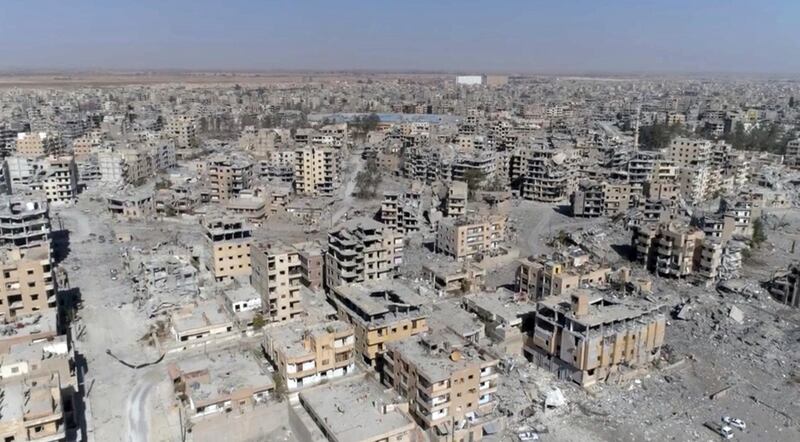A raid by elite Israeli commandos on the Syrian city of Raqqa in February of this year while the city was still under the control of Isil provided the information which led to the banning of laptop computers on passenger flights by Britain and America, according to a report in Vanity Fair.
The magazine goes on to claim that the details about this operation was shared by American president Donald Trump with Sergey Lavrov, the Russian foreign minister, and Sergey Kislyak, that country’s ambassador to Washington, provoking fury from the Israelis.
The raid was led by Sayeret Matkal force, Israel’s equivalent of the SAS, with support from Mossad, the country’s national intelligence agency, and involved the soldiers flying deep into Syria. Mossad operatives on the ground drove across the desert in vehicles that were under the flag of forces loyal to the Assad regime.
They placed a listening device in a room where Isil terrorists were discussing potential operations against Western targets and learned from the bugs that the group were planning to attack airplanes with bombs that would be concealed in computers and other electronic devices.
The plan was reported by Vanity Fair to be under the direction of Ibrahim al Asiri, a veteran bombmaker who had also worked for al-Qaeda. Working from the intelligence gleaned by the Israelis from their daring raid, both Britain and America subsequently banned the use of computers on commercial airliners for many months.
It has only been since new screening has been introduced at airports that the ban has been lifted I the US while some airports in Britain have maintained the prohibition. US homeland security secretary John Kelly said that at first the Americans had been sceptical about the efficacity of such a device until they had developed and tested a similar weapon themselves.
“We tested it, on a real airplane, on the ground, pressurised,” Mr Kelly said. “To say the least, it destroyed the airplane.”
But the revelation that Mr Trump had shared such sensitive information with the Russians caused a row between America and Israel, one of its closest allies. “Trump betrayed us,” an Israeli military official is quoted by Vanity Fair as saying. “And if we can’t trust him, then we’re going to have to do what is necessary on our own if our back is up against the wall with Iran.”






